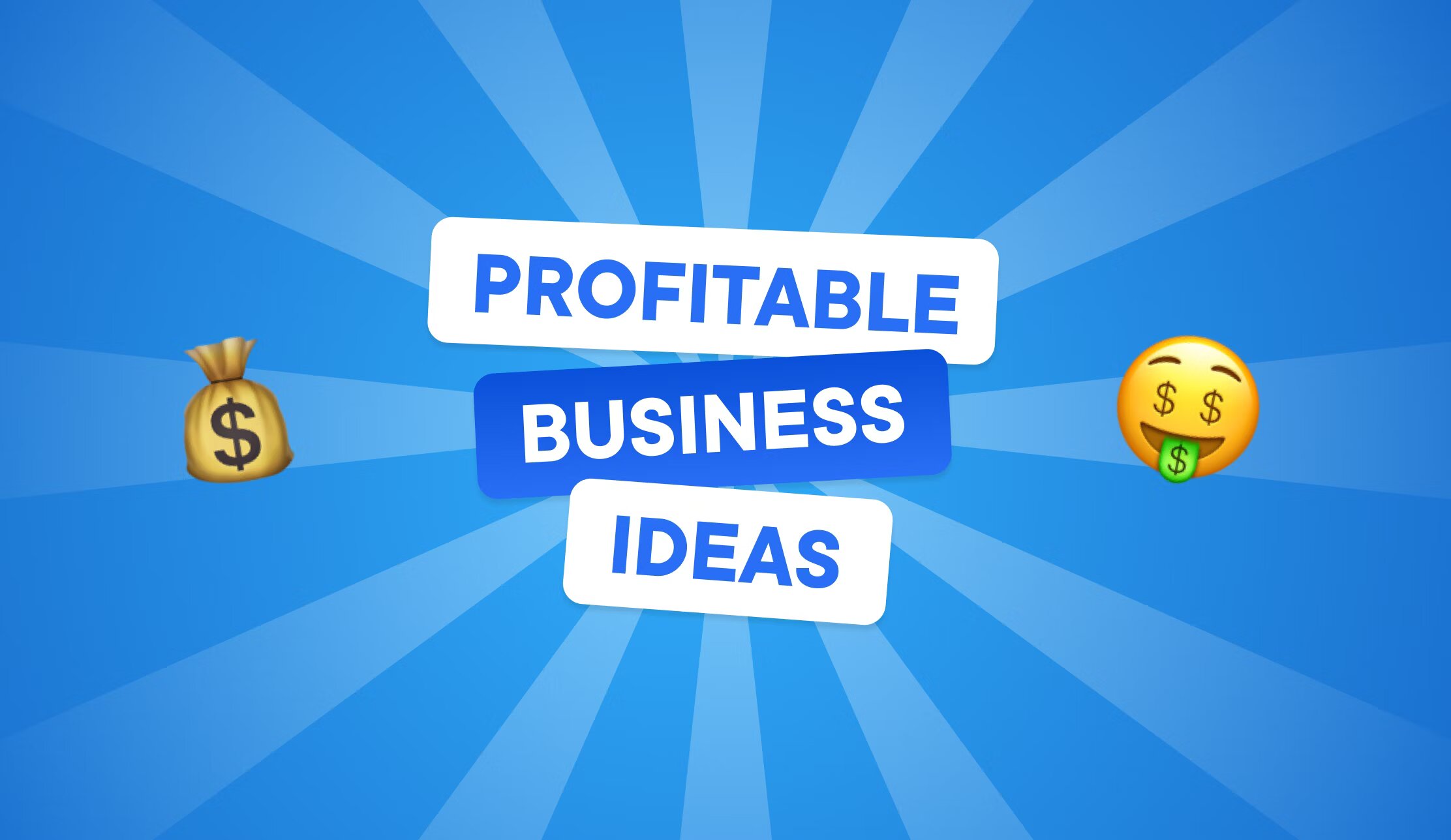Career Tips
Top Most Profitable Businesses To Do In 2024

While company success is never assured, certain chances may be more profitable than others. When starting a new company you should examine industry trends, market demand, operating costs, and prospective profits. To help you identify your next venture, here are some possibly profitable company ideas to start in 2024.
Before we begin, it’s crucial to remember that these are only tiny company ideas with the potential to generate large profit margins. If you decide to establish any of these businesses on your own, you must first assess whether the business is viable in your location, what your business plan and execution will be, and what bigger macroeconomic issues may obstruct your success.
1. Sewing and Alterations Shop
- The tailoring and modifications industry is currently worth about $9.4 billion and is expected to increase at a 4.7% annual rate, according to Polaris industry Research.
- The beauty of this type of business is that it can expand alongside your skill set. For example, you could begin by sewing simple hems and replacing buttons, then grow your business to include dressmaking and design as you gain expertise and experience. Once you can change or customize high-end items like tuxedos and gowns, you may be able to afford to open a physical business.
- However, until then, it is absolutely OK to open your shop in a clean, smoke-free, and pet-free environment in your house. From there, gradually invest in a commercial-grade sewing machine, a variety of materials, backup equipment, and a POS system. Expect to pay anything from $150 for an entry-level sewing machine to $10,000 or more for a top-tier model.
2. Sports Memorabilia Shop
- The sports memorabilia business is currently worth about $26.1 billion. Stunningly, it is anticipated to be valued at $227.2 billion by 2032, according to Market Decipher. This might result in significant annual earnings for brick-and-mortar sports memorabilia stores. This small business idea involves purchasing original or replica memorabilia and reselling it at a greater price.
- You can find memorabilia at wholesalers, auctions, estate sales, classified advertisements, and even internet platforms like eBay. However, you must guarantee that any signed memorabilia you buy is real. You may need to speak with professionals, such as autograph authenticators. As you learn how to authenticate your artifacts, you may make money by authenticating memorabilia that customers bring into your business.
3. Bridal Gowns and Accessories
- The bridal industry is growing by 4.4% and is expected to reach about $79.8 billion valuation by 2027. While people buy many retail products online, nearly 85% of brides are still shopping in stores, according to BusinessWire.
- Starting a bridal shop comes with a steep, but relatively affordable initial investment of around $250,000. In addition to carrying a range of dresses, your bridal shop should also carry accessories including veils, accessories and bridesmaid dresses. High-touch customer service is also essential for this once-in-a-lifetime purchase.
4. Consignment Shop
- According to GlobalData and used clothing retailer ThredUP, the secondhand industry in the United States will be worth about $82 billion by 2026, more than tripling its current size. Furthermore, the resale clothes business is projected to increase 16 times faster than the overall retail apparel industry. A secondhand business is an appealing choice for entrepreneurs who do not have the funds to invest in inventory.
- Rather than purchasing merchandise to sell, you enable others to exhibit their own inventory, and you share in the earnings. Clothing, collectibles, antiques, and mementos are among the used items available at consignment stores. Poshmark, Mercari, and eBay are all online marketplaces where you can sell stuff. Your key expenses will be founding an LLC or other business entity, renting a storefront, paying for necessary insurance and permits, purchasing inventory, investing in a point-of-sale (POS) system, and possibly recruiting employees.
5. Food Truck
- According to IBISWorld, the food truck business is currently worth about $1.4 billion and is growing at a rate of 7.9% annually. It is an appealing choice for entrepreneurs who do not have the initial capital to open a restaurant but want to get into the sector. And, if you eventually want to create your own brick-and-mortar restaurant, a food truck is an excellent method to test multiple locations and target audiences.
- According to the US Chamber of Commerce, a food truck experiences significant regulatory expenditures in a highly regulated business. Expect to pay roughly $55,000 for initial expenses such as permits, licensing, setup, and a specialist restaurant POS system. Expect to invest up to about $5,000 to cover your truck to display the food you serve. Consider renting a food truck instead of buying and setting up your own (which can cost around $125,000). Many rental food trucks come with equipment included.
6. Party Rental Business
- According to a Research and Markets report for 2024, the party rental industry is worth about $5.9 billion and growing at a rate of 4.3% yearly. A party rental company rents out items for parties and other events, such as tables, tents, caterers, sound equipment, and stages. It can be a lucrative business with numerous applications, such as a charitable fundraiser or a high-end events.
- Regardless of its earning potential, you will need to invest considerably in equipment before turning a profit, which you would then recoup through recurring equipment rentals. As you establish your company’s inventory, you may be able to save money by hiring a storage facility and then heavily marketing your products to inform the community about what you may rent out. However, you’ll save more money in the long term if you open a physical store as soon as feasible to build brand reputation.
7. Bed and Breakfast (B&B)
- If you own a lovely, natural, or historic home, this could be an excellent first project. The bed and breakfast industry is currently worth around $2 billion in the United States, according to the Bureau of Labor Statistics. Though it underwent a halt during the Covid-19 pandemic, its average annual growth rate is 3.8%. And, because owners typically live on-site, you can save money on lodging and spend it in your business.
- In addition to individualized customer service, a beautiful vacation experience, and home-cooked meals, most B&B guests demand easy access to amenities like grocery stores and local attractions. Expect to pay for home insurance, a food safety handling permit, and possibly a license to sell alcohol, if appropriate. If you intend to convert a typical residence into a bed and breakfast, you must also consult with your local planning authority.
8. Gently Used Maternity Clothing Shop
- According to Research and Markets, the maternity clothing business was valued at $12.2 billion in 2021 and is expected to expand to about $16.5 billion by 2028, representing a 4.4% year-on-year increase. According to the Bureau of Labor Statistics, the U.S. workforce is roughly 57% female, which leads to a demand for formal, business women’s maternity wear.
- Following pregnancy, many women explore for methods to pass on maternity gear to other women who could benefit from it. You can help them by creating a shop selling gently used maternity clothes and other pregnancy needs.
- To open a used maternity clothing store, select a business structure and make it legally official. Then apply for a seller’s permit. Finally, look for inventory on social media, consignment shops, and thrift stores. Also, inform your community that you buy used maternity clothing. Finally, sell your clothes for more than the original purchase price.
9. Consulting
- Starting a consulting business is an excellent opportunity to leverage your years of experience and skill in a specific industry. You can make up to about $300 per hour by sharing your expertise and assisting other companies in growing, either electronically or through an investment in office space and equipment. Common fields include public relations and media, career advancement, accountancy, and cybersecurity consultancy.
10. Social Media Management
- With an estimate of about 4.9 billion individuals globally using social media for an average of 145 minutes each day, it’s no surprise that 77% of businesses use these channels as a primary marketing strategy. If you have talents and experience in digital writing, editing, and marketing, think about beginning your own social media marketing business.
- Small businesses with limited time, resources, or budgets may consider outsourcing their social media operations to help them drive traffic, create leads, raise brand awareness, and even sell products directly. To get started, you’ll need a computer with internet access and at least one of the top social media management tools to help you operate your business more efficiently.
11. Accounting and Bookkeeping
- According to the Bureau of Labor Statistics, the average accountant and auditor earns around $78,000 per year, with the field growing at a 4% annual pace. Accounting companies can charge clients anywhere from the mid-$30s to more than $400 per hour, depending on the accountant’s expertise, experience, and level of intricacy necessary. You’ll require at least a bachelor’s degree in accounting to assist clients with tasks such as tax return preparation, financial statement preparation, and financial analysis and advice.
- If you do not have an accounting degree, you can start a bookkeeping business that does not require certification. Unlike accounting, bookkeeping focuses on regularly documenting financial processes such as invoicing, bill payments, and payroll, which is commonly done through online bookkeeping services.
12. Cleaning Service
- Starting a cleaning service can help you get a piece of a lucrative sector that is predicted to nearly treble to $14.6 billion by 2030, according to Research and Markets. To get started, decide whether you will provide residential, business, or both services.
- Following that, you’ll need to register an LLC and secure a business license and any necessary insurance. You can start your firm as a solopreneur with basic cleaning supplies, then expand your workforce and equipment as it grows.
13. Virtual Assistant
- According to ZipRecruiter, virtual freelance assistants in the United States earn an average of about $33.84 per hour in September 2023, with hourly rates ranging up to $82.21. Whether you want to start a high-profit side hustle or transform it into a full-time job, becoming a virtual assistant involves little initial investment, largely in ordinary equipment and software you may already have.
- You can begin by applying for openings on prominent job networking sites, and then grow your business through word-of-mouth and your own small business website.
14. Cupcake Business
- If your family and friends praise about your baking abilities, this is the suggestion for you. Demand for the cake sector is predicted to increase. Grand View Research estimated that the global cake sector was worth about $42.9 billion in 2024, with an annual growth rate of 3.3%. As an added benefit, tiny niche shops are projected to receive the majority of the revenues.
- A cupcake business is a realistic choice for entrepreneurs who have limited resources. To begin this prospective home business idea, all you need is an oven and some basic baking equipment. Once the sales start coming in, you can expand into larger formats. For example, you could begin by selling your cupcakes in a neighborhood shop’s display case, then progress to a food truck, and lastly to a standalone brick-and-mortar store.
- Investigate the regulations in your state regarding the licenses, permits, and requirements you must follow for your new bakery business. Overall, there are numerous laws and regulations that must be followed when making food for public consumption. For example, in Virginia, you may need a permission to operate a bakery from your house, and you must adhere to rules governing cupcake labeling and safe manufacturing techniques.












